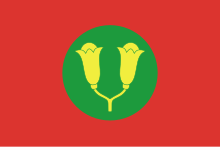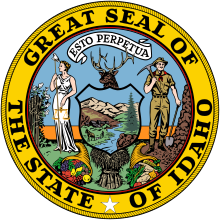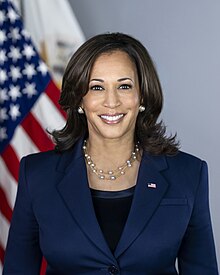
Back Portal:Politik ALS بوابة:السياسة Arabic بوابة:سياسة ARZ Портал:Политика Bulgarian প্রবেশদ্বার:রাজনীতি Bengali/Bangla Portal:Politika BS دەروازە:سیاسەت CKB Portál:Politika Czech Portal:Politik German Portal:Siyaset DIQ
| Main | Topics and categories | Tasks and projects |
The Politics portal
Politics (from Ancient Greek πολιτικά (politiká) 'affairs of the cities') is the set of activities that are associated with making decisions in groups, or other forms of power relations among individuals, such as the distribution of resources or status. The branch of social science that studies politics and government is referred to as political science.
It may be used positively in the context of a "political solution" which is compromising and non-violent, or descriptively as "the art or science of government", but also often carries a negative connotation. The concept has been defined in various ways, and different approaches have fundamentally differing views on whether it should be used extensively or in a limited way, empirically or normatively, and on whether conflict or co-operation is more essential to it.
A variety of methods are deployed in politics, which include promoting one's own political views among people, negotiation with other political subjects, making laws, and exercising internal and external force, including warfare against adversaries. Politics is exercised on a wide range of social levels, from clans and tribes of traditional societies, through modern local governments, companies and institutions up to sovereign states, to the international level.
In modern nation states, people often form political parties to represent their ideas. Members of a party often agree to take the same position on many issues and agree to support the same changes to law and the same leaders. An election is usually a competition between different parties.
A political system is a framework which defines acceptable political methods within a society. The history of political thought can be traced back to early antiquity, with seminal works such as Plato's Republic, Aristotle's Politics, Confucius's political manuscripts and Chanakya's Arthashastra. (Full article...)
Selected article
The Political Cesspool is a weekly talk radio show founded by James Edwards, and syndicated by Liberty News Radio Network and Accent Radio Network. First broadcast in October 2004 twice a week from radio station WMQM, it is broadcast on Saturday nights on WLRM, a Christian radio station in Millington, Tennessee. Its sponsors include the white separatist Council of Conservative Citizens and the Institute for Historical Review, a Holocaust denial group. According to its statement of principles, the show stands for the "Dispossessed Majority" and represents "a philosophy that is pro-White." It has attracted criticism from multiple organizations for its promotion of anti-semitic, white nationalist and white supremacist views. The show features Edwards and his co-hosts Bill Rolen, Winston Smith, Keith Alexander, and Eddie Miller, as well as producer Art Frith. Its guests have included author Jerome Corsi, Minuteman Project leader Jim Gilchrist, former Constitution Party presidential candidate Michael Peroutka, actor Sonny Landham, British National Party leader Nick Griffin, Vermont secessionist Thomas Naylor, and paleoconservative activist Pat Buchanan.
Featured picture

The resignation letter of U. S. President Richard M. Nixon on August 9, 1974 during the Watergate scandal.
Selected quote
Selected biography
Yasser Arafat (1929–2004) was a Palestinian militant and politician. As Chairman of the Palestine Liberation Organization and President of the Palestinian National Authority, Arafat continuously fought against Israeli forces in the name of Palestinian self-determination. Arafat was constantly surrounded by controversy, as in the late 1960s and early 1970s, when Fatah faced off with Jordan in a civil war. Forced out of Jordan and into Lebanon, Arafat and Fatah were the targets of Israel's 1978 and 1982 invasions of that country. Arafat was said to be a key planner of the Black September organization's murder of eleven Israeli athletes at the 1972 Summer Olympics. The majority of the Palestinian people – regardless of political ideology or faction – viewed him as a heroic freedom fighter and martyr who symbolized the national aspirations of his people. However, many Israelis have described him as an unrepentant terrorist. In 1994, Arafat received the Nobel Peace Prize, together with Yitzhak Rabin and Shimon Peres, for the negotiations in the Oslo Accords. In late 2004, after effectively being confined within his Ramallah compound for over two years by the Israeli Defense Forces, Arafat became ill and fell into a coma, and later died.
Did you know (auto-generated) -

- ... that prior to entering politics, Herbert Salvatierra led a troupe of carnival comparsas?
- ... that the only purpose of the Delaware Straight-Out Truth Teller was to promote a political candidate?
- ... that a political action committee paid $132,000 to former First Lady Melania Trump's fashion stylist for strategy consulting?
- ... that thousands of political prisoners in Indonesia were interned in the Waeapo River valley in Buru?
- ... that before becoming the mayor of Medan, Indonesia, Agus Salim Rangkuti acted in movies and oversaw a real-life political prison camp?
- ... that Ambati Rambabu, the state minister for irrigation of Andhra Pradesh, dabbled in acting before entering politics?
More did you know...
- ...that the traditional form of government in Tibet from 1642 to 1951 was the Cho-sid-nyi?
- ...that politicians discuss the ways in which they and their families have suffered because of Oprahization?
- ...that Democratic and Republican plans for the 2012 United States federal budget both focus on deficit reduction, but differ in their changes to taxation, entitlement programs, and research funding?
- ...that Conservative Party candidate Bernard Trottier won a seat in the 41st Canadian Parliament by defeating the incumbent Leader of the Liberal Party of Canada in the 2011 federal election?
- ...that co-founder of the Saudi Civil and Political Rights Association Mohammed al-Bejadi spent most of 2011 in prison?
- ...that when the Tennessee Center for Policy Research, a "free-market think tank," criticized Al Gore's energy use, CNN mistakenly called the organization an environmental group?
In this month
- May 5, 2005 – A General Election in the United Kingdom sees Tony Blair's Labour government returned to office with a reduced majority of 66.
- May 14, 1948 – The Declaration of Independence of Israel is made.
- May 18, 1948 – The first Legislative Yuan of the Republic of China officially convenes in Nanking.
News and Current events
- August 11: 4 local government areas in New South Wales, Australia locked down after COVID-19 case
- August 11: Australia: AstraZeneca vaccine access expanded by Victorian government
- August 1: Australia: Victorian lockdown lifted
- July 29: Tunisia's president dismisses prime minister, suspends parliament
- July 25: Australia: Wikinews interviews Reg Kidd, mayor of the City of Orange, about COVID-19 lockdown and local government
- July 23: South Australia enters week-long lockdown to contain COVID-19 Delta variant spread
- July 21: Technological University Dublin senior lecturer Dr Lorcan Sirr speaks to Wikinews on housing market in Ireland
- July 21: Three rural councils in New South Wales, Australia enter 7-day lockdown
- July 21: Australia: Victoria lockdown extended by a week with 85 active cases recorded
- July 15: California governor signs new state budget, eligible Californians to get stimulus payments
Topics and categories
General images
Related portals
Associated Wikimedia
The following Wikimedia Foundation sister projects provide more on this subject:
-
Commons
Free media repository -
Wikibooks
Free textbooks and manuals -
Wikidata
Free knowledge base -
Wikinews
Free-content news -
Wikiquote
Collection of quotations -
Wikisource
Free-content library -
Wikiversity
Free learning tools -
Wiktionary
Dictionary and thesaurus
Sources
More portals
© MMXXIII Rich X Search. We shall prevail. All rights reserved. Rich X Search


























































